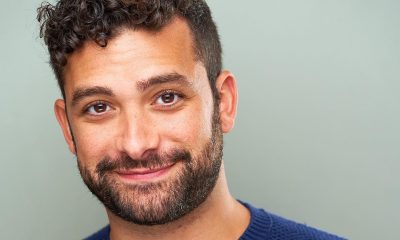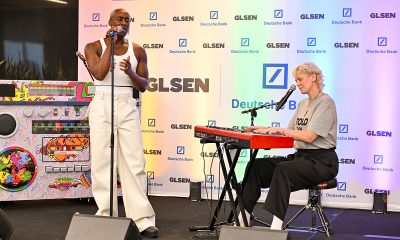Arts & Entertainment
No walk in the ‘Park’ for Claybourne Elder
George’ actor Elder on the rigors of artistic life
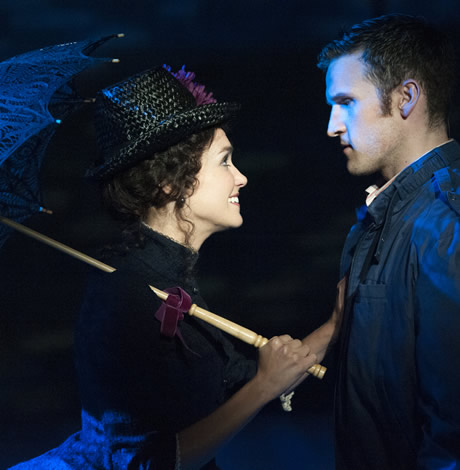
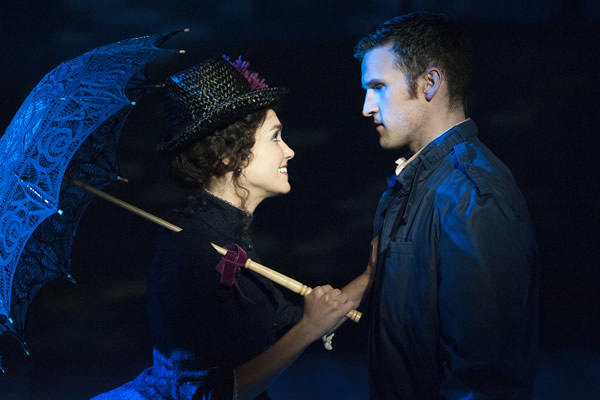
Brynn O’Malley as Dot and Claybourne Elder as George in ‘Sunday in the Park with George.’ (Photo by Margot Schulman; courtesy Signature Theatre)
‘Sunday in the Park with George’
Through Sept. 21
4200 Campbell Ave. Arlington
703-820-9771
At 32, Claybourne Elder is living the theater dream with a charmed career. The handsome out actor’s first big break came playing Hollis Bessemer, the young gay heir in the original off-Broadway production of Stephen Sondheim’s “Road Show” in 2008.
“I’d just moved to New York and went on an open chorus call never dreaming I’d be cast,” he says. “They asked me back and I got the part. Suddenly I was playing across from two actors I revere, Michael Cerveris and Alexander Gemignani, and Sondheim was sitting around drinking coffee and giving notes. It was unreal.”
Elder has worked nonstop ever since on Broadway and beyond, interpreting extant parts and creating roles like Clyde Barrow’s likable brother Buck in the Broadway musical “Bonnie & Clyde,” and aviator Charles Lindbergh in “Take Flight.” He played Ollie, a New Orleans prostitute in “One Arm,” Moisés Kaufman’s dramatic adaptation of Tennessee Williams’ same-titled short story and unfinished screenplay.
And now he’s tackling the part of George in Signature Theatre’s production of Stephen Sondheim and James Lapine’s wondrous musical “Sunday in the Park with George,” a role Elder has had his eye, and ear, on for a long time. The story focuses on the struggles of French painter Georges Seurat (called George in the musical). He’s surrounded by his lover Dot, and his masterpiece “A Sunday Afternoon on the Island of Le Grande Jatte” and those characters depicted in the painting. In the second act, George’s sculptor descendant (also named George and also played by Elder) strives to make sense of life, love and art in 1980s New York City.
For many musical theater lovers, “Sunday in the Park with George” holds a special place in the canon.
“It’s my favorite among all the children,” says Elder laughing. “It’s true. The show has so many universal themes. People connect to it in deep ways. It’s an emotionally charged theatrical event.”
“And my part is magically written,” he adds. “I couldn’t ask for a part written more perfectly in my range. I’m a tenor with a dash of baritone. My songs have lovely rich lower things and then go up high. It’s technically challenging but in a very pleasurable way, never needlessly challenging. Sondheim never writes music to impress. He doesn’t have to.”
Matthew Gardiner, the Signature production’s director, concurs on “Sunday’s” specialness. “Ever since first watching the original Broadway production on VHS tape in middle school, I’ve always wanted to do this musical. The score sung by Mandy Patinkin and Bernadette Peters is forever seared on my brain. It’s perfection and for my money, it has some of the best music ever written. It speaks to what it is to be an artist. And what it means to connect with people and achieve harmony in our lives.”
Finding the right actor to play George was imperative to Signature’s production, Gardiner says. “There were casting sessions in New York and Washington. We were looking for a strong, quiet presence. There’s something serious going on behind Elder’s eyes. In tandem with him being a fantastic singer and a great actor, he’s a likable and engaging person — someone to root for. That’s not something you can direct.”
Elder, who graduated from the University of Utah with a degree in dramaturgy, confesses to being sort of a geek. His major allowed him to study works within historical and philosophical contexts. As an actor, he uses extensive research to get a handle on his characters. And it works. Fans sometimes don’t recognize him from one show to the next. “Well, that’s what actors do,” Elder says. “We disappear into the role.”
It’s not as easy to disappear on TV. Last year Elder took a break from theater to appear on CW’s “The Carrie Diaries,” the now-canceled prequel to “Sex and the City.”
“From that show I got recognized by 15-year-old girls and gay men a lot,” he says, recalling one bar visit with family. “A patron wouldn’t stop screaming ‘Pete!’ It took me a while to realize he was calling me. Pete was my character’s name on the show. That was a first.”
Georges Seurat died at just 31 without ever having sold a painting. Still, Elder feels connected to him. “He’s consumed by art. I can relate to that. Theater requires me to be in a room every day performing. When you’re in a show in New York you don’t leave town. You miss weddings and life events all the time. That’s just how it is.”
Fortunately, Elder’s husband, director Eric Rosen, is in the business and understands how it works. The couple is based in New York City and Kansas City, Mo., where Rosen heads up the Kansas City Repertory Theatre. They work hard to spend quality time together and stay close with their families. Elder describes his Mormon parents as “the most liberal conservatives you’ll ever meet.”
Next up, Elder is slated to play the young doctor in John Doyle’s off-Broadway revival of Rodgers and Hammerstein’s “Allegro.” Rehearsals start the day after Signature’s “Sunday” closes. And the dream continues.
Arts & Entertainment
2026 Most Eligible LGBTQ Singles nominations
We are looking for the most eligible LGBTQ singles in the Washington, D.C. region.

Are you or a friend looking to find a little love in 2026? We are looking for the most eligible LGBTQ singles in the Washington, D.C. region. Nominate you or your friends until January 23rd using the form below or by clicking HERE.
Our most eligible singles will be announced online in February. View our 2025 singles HERE.
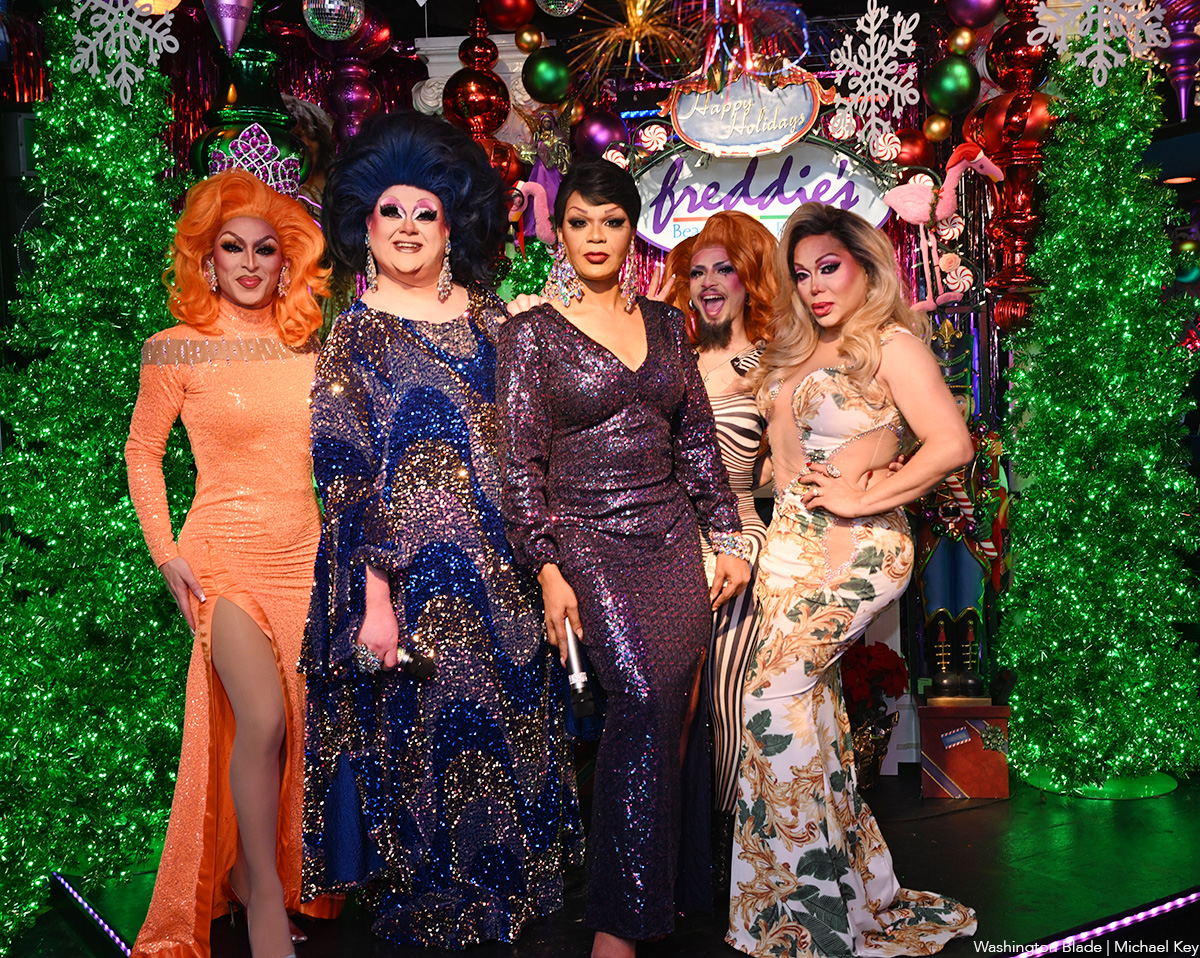
The Freddie’s Follies drag show was held at Freddie’s Beach Bar in Arlington, Va. on Saturday, Jan. 3. Performers included Monet Dupree, Michelle Livigne, Shirley Naytch, Gigi Paris Couture and Shenandoah.
(Washington Blade photos by Michael Key)

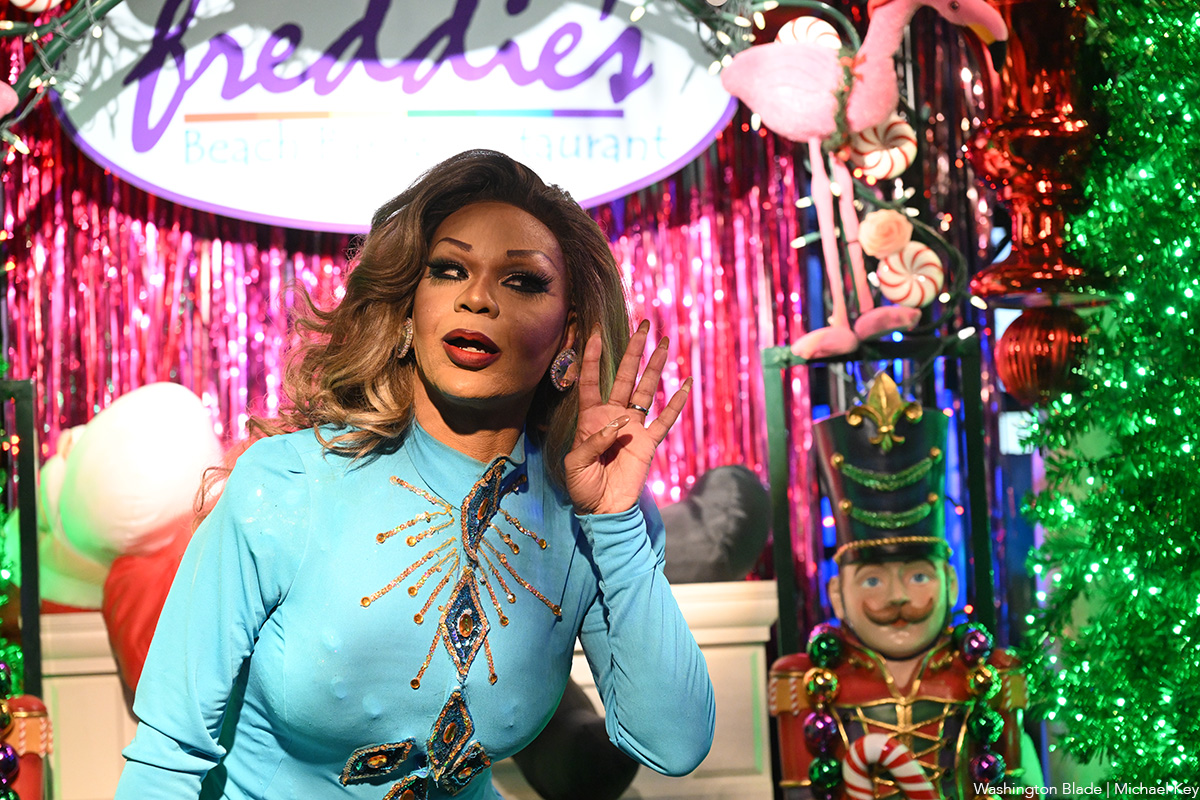





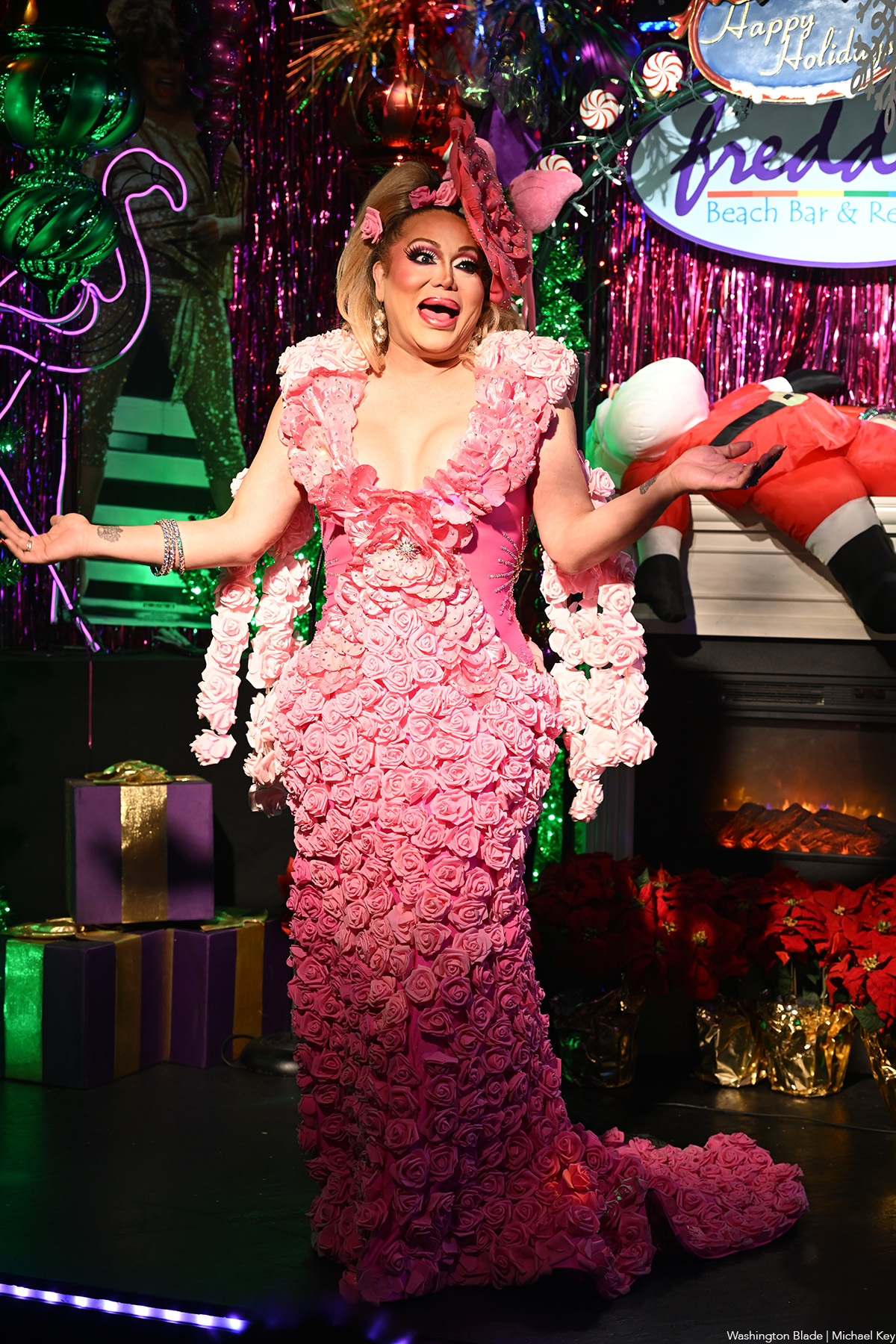
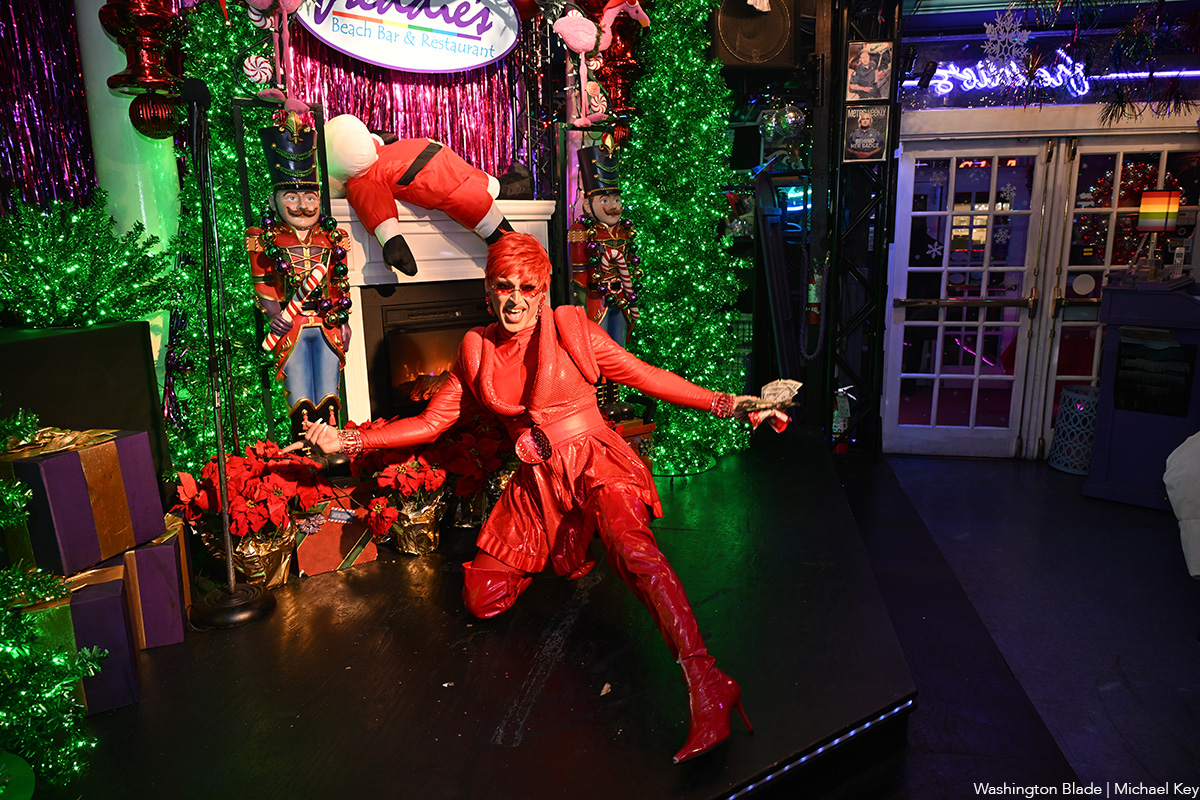
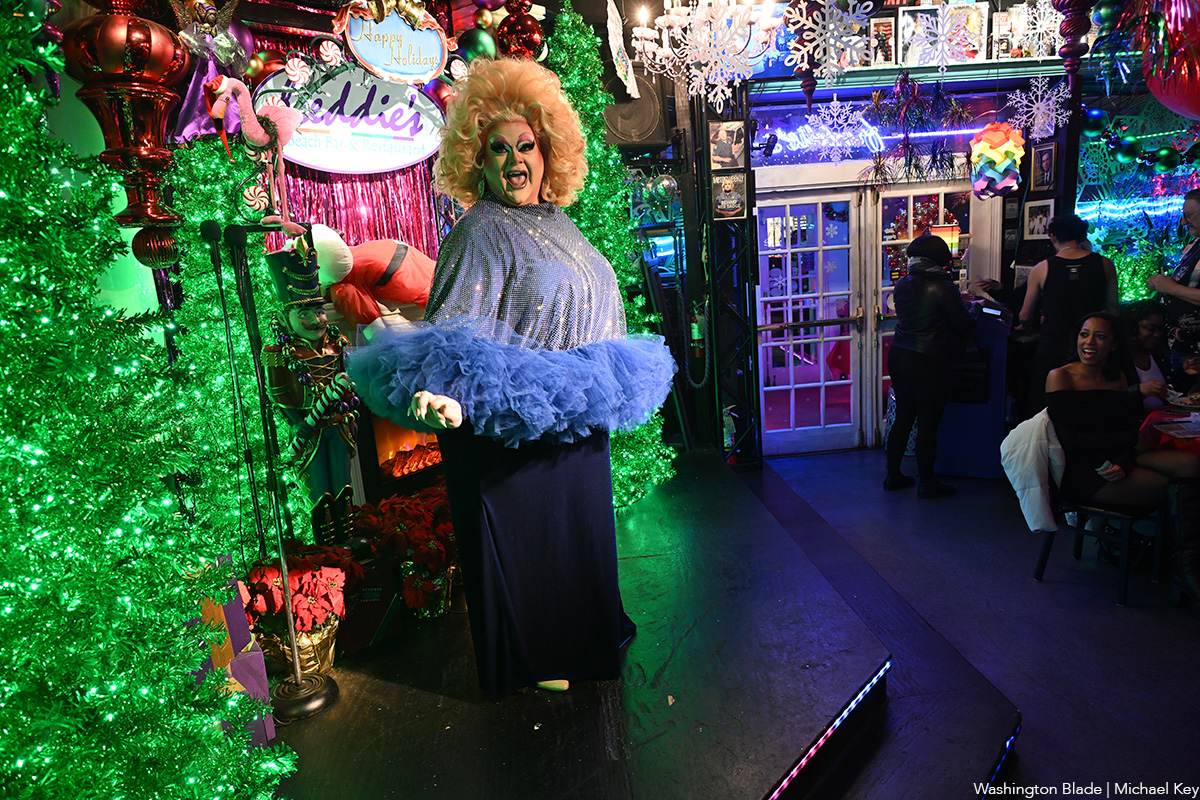
a&e features
Queer highlights of the 2026 Critics Choice Awards: Aunt Gladys, that ‘Heated Rivalry’ shoutout and more
Amy Madigan’s win in the supporting actress category puts her in serious contention to win the Oscar for ‘Weapons’
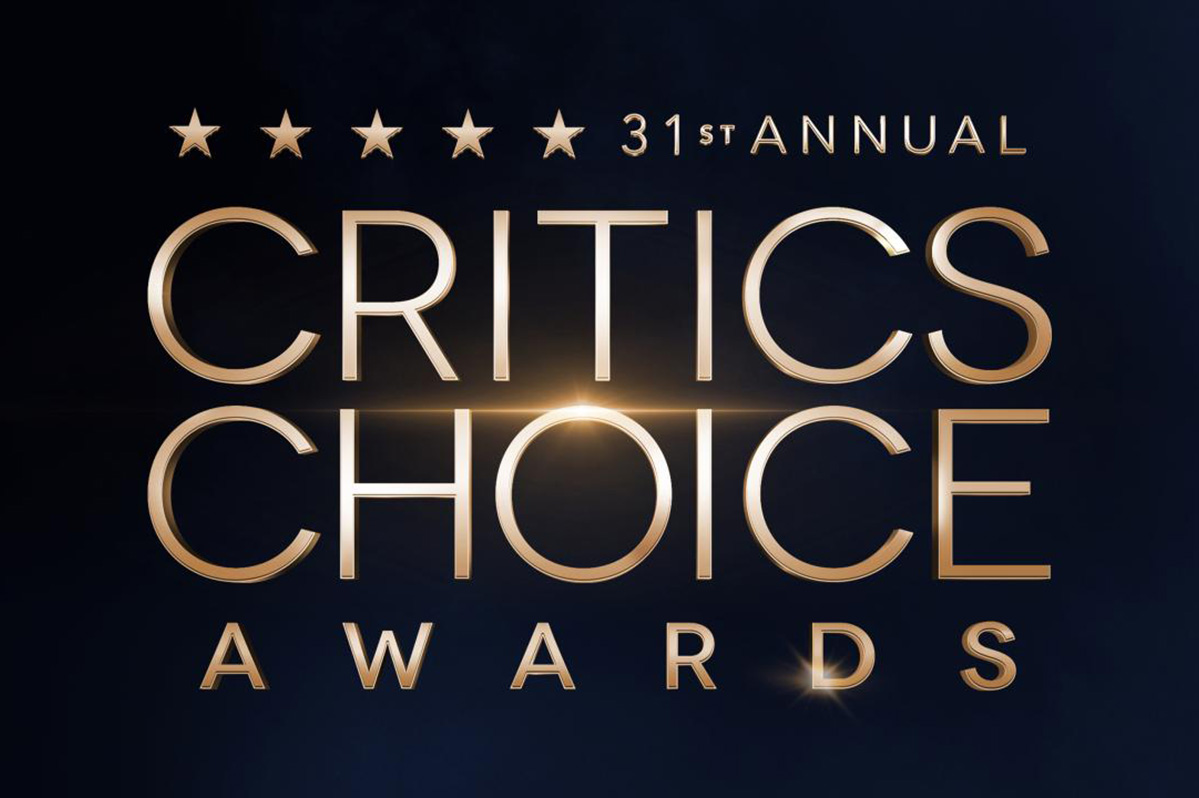
From Chelsea Handler shouting out Heated Rivalry in her opening monologue to Amy Madigan proving that horror performances can (and should) be taken seriously, the Critics Choice Awards provided plenty of iconic moments for queer movie fans to celebrate on the long road to Oscar night.
Handler kicked off the ceremony by recapping the biggest moments in pop culture last year, from Wicked: For Good to Sinners. She also made room to joke about the surprise hit TV sensation on everyone’s minds: “Shoutout to Heated Rivalry. Everyone loves it! Gay men love it, women love it, straight men who say they aren’t gay but work out at Equinox love it!”
The back-to-back wins for Jacob Elordi in Frankenstein and Amy Madigan in Weapons are notable, given the horror bias that awards voters typically have. Aunt Gladys instantly became a pop culture phenomenon within the LGBTQ+ community when Zach Cregger’s hit horror comedy released in August, but the thought that Madigan could be a serious awards contender for such a fun, out-there performance seemed improbable to most months ago. Now, considering the sheer amount of critics’ attention she’s received over the past month, there’s no denying she’s in the running for the Oscar.
“I really wasn’t expecting all of this because I thought people would like the movie, and I thought people would dig Gladys, but you love Gladys! I mean, it’s crazy,” Madigan said during her acceptance speech. “I get [sent] makeup tutorials and paintings. I even got one weird thing about how she’s a sex icon also, which I didn’t go too deep into that one.”
Over on the TV side, Rhea Seehorn won in the incredibly competitive best actress in a drama series category for her acclaimed performance as Carol in Pluribus, beating out the likes of Emmy winner Britt Lower for Severance, Carrie Coon for The White Lotus, and Bella Ramsey for The Last of Us. Pluribus, which was created by Breaking Bad’s showrunner Vince Gilligan, has been celebrated by audiences for its rich exploration of queer trauma and conversion therapy.
Jean Smart was Hack’s only win of the night, as Hannah Einbinder couldn’t repeat her Emmy victory in the supporting actress in a comedy series category against Janelle James, who nabbed a trophy for Abbott Elementary. Hacks lost the best comedy series award to The Studio, as it did at the Emmys in September. And in the limited series category, Erin Doherty repeated her Emmy success in supporting actress, joining in yet another Adolescence awards sweep.
As Oscar fans speculate on what these Critics Choice wins mean for future ceremonies, we have next week’s Golden Globes ceremony to look forward to on Jan. 11.



